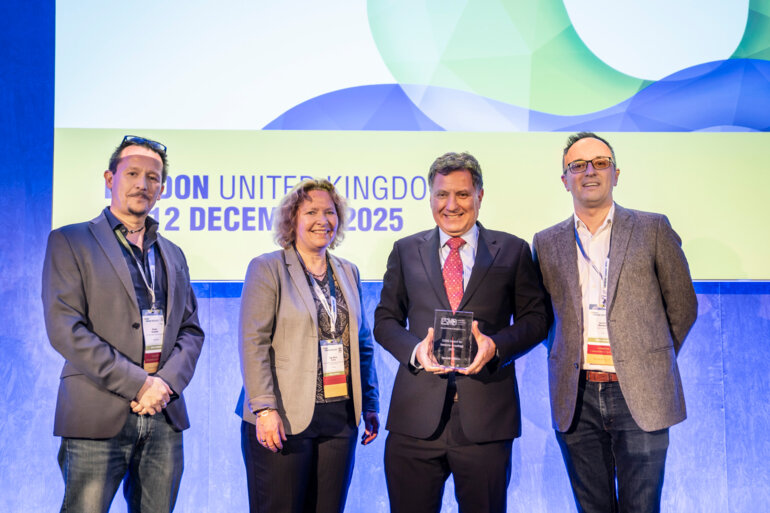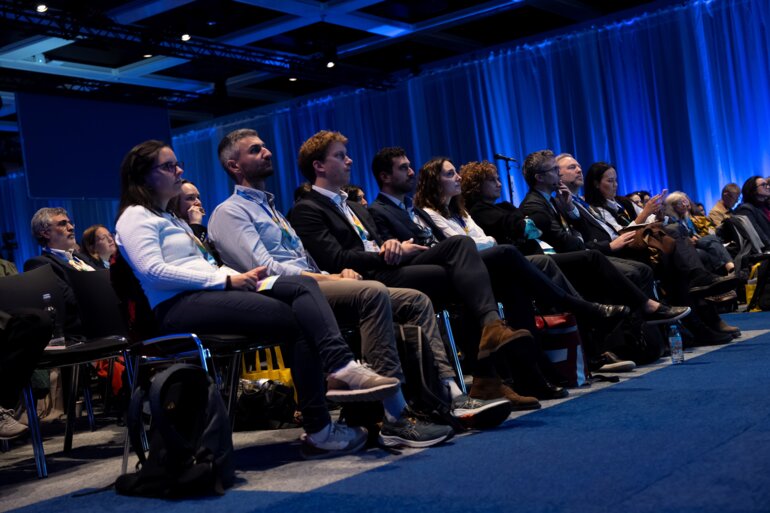Results presented from some studies are a signal of an active area of research which is investigating not only immune checkpoint inhibitors but also vaccines and cellular therapies, although there are no immunotherapy treatments currently approved.
Immunotherapy of brain tumours remains a promising treatment strategy given the limited efficacy of current treatments for these tumours and the groundbreaking success of immunotherapy for extracranial malignancies. However, clinical trials of immunotherapy for the treatment of primary brain tumours, predominantly glioma, have not yet conferred a survival benefit compared with conventional cancer treatments. In recent years, results from three large phase III trials in patients with newly diagnosed or recurrent glioblastoma receiving nivolumab have been very disappointing (Neuro Oncol. 2022;24:1935–1949; Neuro Oncol. 2023;25:123–164; JAMA Oncol. 2020;6:1003–1010). In contrast, results from trials of immunotherapy for brain metastases – principally parenchymal metastases – are quite encouraging (Front Immunol 2024;15:1418580). Phase II clinical trials showed a high objective response rate in patients with asymptomatic brain metastases, particularly from melanoma (N Engl J Med 2018;379:722–730; Lancet Oncol 2018;19:672–681). Last year the first phase I clinical trial of intrathecal administration of immune checkpoint inhibitor therapy (nivolumab monotherapy) in patients with leptomeningeal disease that had metastasised from melanoma showed that intrathecal immunotherapy is feasible and well tolerated (Nat Med 2023;29:898–905). However, results for patients with symptomatic brain metastases, remains disappointing, and treatment of this population is still challenging (Eur J Cancer 2024;208:114202)
Initial results from the clinical development of immunotherapy for brain tumours are presented at the ESMO Congress 2024 (Barcelona, 13–17 September), showing that neuro-oncology is an active area of research with immune checkpoint inhibitors, viral therapy, vaccines, cytokine-based therapies and cell therapies being investigated.
One of the studies evaluated the safety and dose escalation of an mRNA-based multiepitope vaccine derived from tumour-associated antigens in patients with newly diagnosed O(6)-methylguanine-DNA methyltransferase (MGMT)-unmethylated glioblastoma (Abstract 440O). Compared with peptide vaccines, mRNA-based vaccines are a viable alternative as they are easier to produce and have shorter manufacturing times. However, tumour antigens may not be expressed homogeneously throughout the tumour and the peripheral vaccine-induced immune response may be too weak to overcome the immunosuppressive microenvironment of the tumour, which has been observed with peptide-based vaccine approaches.
A phase I clinical trial investigated the feasibility and safety of intracranial administration of myeloid dendritic cells in combination with nivolumab and ipilimumab in patients with recurrent high-grade glioma (Abstract 441O). The survival rate was encouraging and showed that administration of a rather complex regimen can be implemented successfully. The approach of allogeneic CAR-γδ T is an exciting development as it has a unique ability to recognise a broad range of antigens independent of MHC molecules and can be applied off-the-shelf, therefore, offering greater accessibility. The results of the phase I trial of allogeneic CAR-γδ T cells targeting B7H3 in patients with B7H3-positive recurrent glioblastoma showed a partial response rate of 43% and stable disease in 57% of patients, with excellent persistence of the cells and a good safety profile (Abstract 4420). There is a potential for side effects as CAR-γδ T cells recognise such a broad range of antigens, and longer follow-up is needed before we can be sure that this is a viable option for the treatment of brain tumours.
The future holds significant potential for advancement in the immunotherapy of brain tumours, and we hope to see an immunotherapy ‘revolution’ of the treatment paradigm in this field as it has been for other solid tumours.
Programme details
Tabatabai G, et al. First in human study of the mRNA-based cancer vaccine CVGBM in patients (pts) with newly diagnosed and surgically resected MGMT-unmethylated glioblastoma (GBM): first results from the dose escalation phase. ESMO Congress 2024, Abstract 440O
Proffered Paper Session – CNS tumours, 13.09.2024, h. 14:00 – 15:30, Pamplona Auditorium – Hall 3
Neyns B, et al. A phase I clinical trial on the intracranial administration of autologous CD1c(BDCA-1)+ /CD141(BDCA-3)+ myeloid dendritic cells (myDC) in combination with ipilimumab (IPI) and nivolumab (NIVO) in patients with recurrent high-grade glioma (rHGG). ESMO Congress 2024, Abstract 441O
Proffered Paper Session – CNS tumours, 13.09.2024, h. 14:00 – 15:30, Pamplona Auditorium – Hall 3
Li X, et al. A phase I clinical trial of intrathecal injection of allogeneic CAR-γδT cells targeting B7H3 for the treatment of patients with recurrent glioblastoma. ESMO Congress 2024, Abstract 442O
Proffered Paper Session – CNS tumours, 13.09.2024, h. 14:00 – 15:30, Pamplona Auditorium – Hall 3





